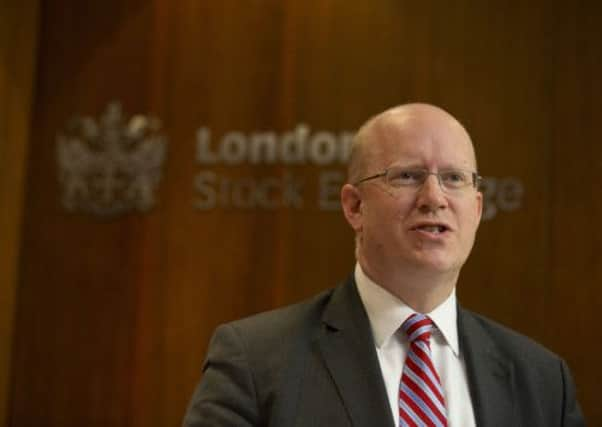Refusal to join price war pays off for Direct


The UK’s biggest motor insurer is slashing costs and recently announced three site closures.
In June the company said another 2,000 jobs are under threat – up to a quarter of them at three offices in Leeds.
Advertisement
Hide AdAdvertisement
Hide AdThe group has more than doubled its original cost savings target to over £200m in annual savings by 2014. Nearly 500 jobs could be affected at offices in The Headrow, The Wharf and at Pudsey.
The group is currently in consultation with staff and said it will update on the exact location of job cuts when the process is completed.
The firm’s pre-tax profits leapt 96 per cent to £208.8m in the six months to June 30, helped by unusually low levels of weather-related claims.
While the start of this year was unseasonably cold, there was none of the flooding or freezing conditions that cost the group £90m in the first half of 2012.
Advertisement
Hide AdAdvertisement
Hide AdDirect Line, which also owns brands such as Churchill, Privilege and the Green Flag roadside recovery service, is putting profit over sales volumes by holding prices while rivals slash premiums, as well as by cutting the number of new young drivers it takes on who are deemed a bigger risk.
However, the group has reduced motor insurance by three per cent in order to stay competitive.
Net insurance claims fell to £1.07bn from £1.22bn.
Intense competition drove Direct Line’s gross written premiums down four per cent to £1.98bn as it sticks to its focus on value over volume.
In order to drive down claims costs, the Government introduced a series of legal reforms on April 1 which more than halve the fixed fees lawyers can charge insurers when dealing with motor personal injury claims
Advertisement
Hide AdAdvertisement
Hide AdThis motivated many lawyers to file claims before the reforms came into effect.
Chief executive Paul Geddes said: “If you look at the data, just before April came in with all the legal changes, there seems to be an acceleration of claims and since the reforms have come in, you get a downturn.”
He said it is too early to predict the full effect of the reforms.
Direct Line was boosted by the release of reserves that had been held to protect the group in case of a surge in injury claims. These failed to materialise with claims lower than expected and so the group was able to release £239m, up from £228m last year. Numis Securities analyst Nick Johnson said: “The biggest factor is stronger reserve releases. Small bodily injury claims in the motor segment are coming in lower than expected, so they are able to release reserves they had been holding.”
Advertisement
Hide AdAdvertisement
Hide AdAnalyst Eamonn Flanagan at Shore Capital added: “We have consistently maintained that Direct Line has come to the market ‘fat’ with reserves, as highlighted by the release in the first half of £239m.
However, we must give credit to management in respect of its targeting and delivery of cost savings.”
The group is paying an interim dividend of 4.2p per share, up five per cent on last year.
In June Direct Line said staff at all three of its Leeds premises will be among 2,000 workers nationwide to be hit by the cull.
Advertisement
Hide AdAdvertisement
Hide AdHead office and support functions will be the hardest hit in the latest round of cuts, with staff affected at bases in The Headrow and The Wharf, in Leeds city centre, and in Cote Lane, Farsley.
The company is consulting with staff over job losses across its 16 UK centres and has already said it will axe sites in Liverpool, Croydon and central London by the end of the year.
Direct Line said it hopes to redeploy some of the affected staff and find opportunities with other potential employers.
“As we have done in the past, we will deal fairly and carefully with those impacted and do all we can to support them,” said Mr Geddes.
Advertisement
Hide AdAdvertisement
Hide AdDirect Line, which was spun out of Royal Bank of Scotland in a £787m float last year, is Britain’s biggest car insurer and one of the UK’s biggest home insurers.
RBS floated nearly a third of Direct Line’s shares last October, fulfilling conditions of a Government bailout during the 2008 financial crisis that left the bank 82 per cent state-owned.
The company said it is on track to meet its combined operating ratio target of 98 per cent.